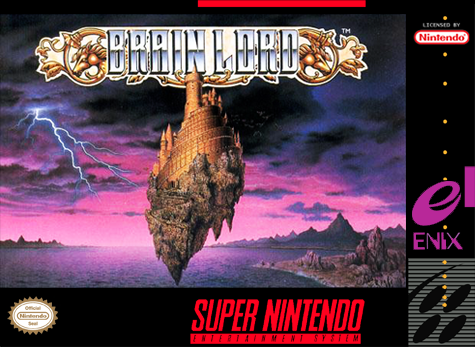
The SNES boasts an incredible library. There’s no denying that. Everyone knows about the classics, but there are tons of solid titles lurking below the surface. These games aren’t nearly as well known but you could easily waste a weekend or two playing. Brain Lord definitely qualifies as such an example. Released over 23 years ago, it largely flew under the radar as more popular games basked in the spotlight. It’s funny — as a kid I couldn’t care less for (action) RPGs but Brain Lord captivated my imagination when I saw it featured in EGM and GameFan. There was something about it that spoke to my soul. Sadly, like so many other SNES games, I was never able to play it until my SNES resurrection in 2006. Though not quite a hidden gem, Brain Lord is plenty solid and well worth checking out if the like the action RPG genre.
CAPTIVATED
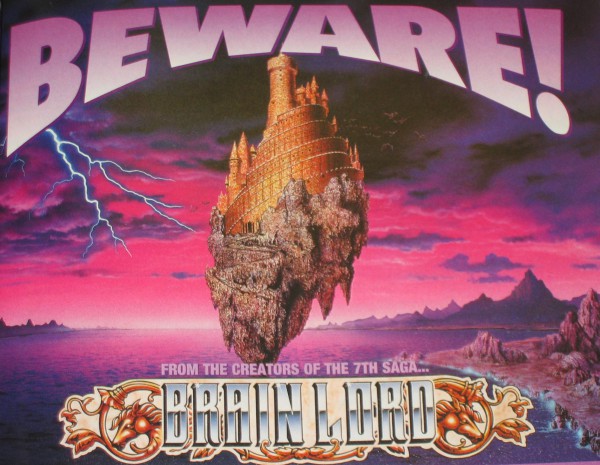
I remember seeing the ad in an EGM issue and being absolutely intrigued.
I was fascinated by the screenshots — the captions really resonated with me.
STRATEGY GUIDE
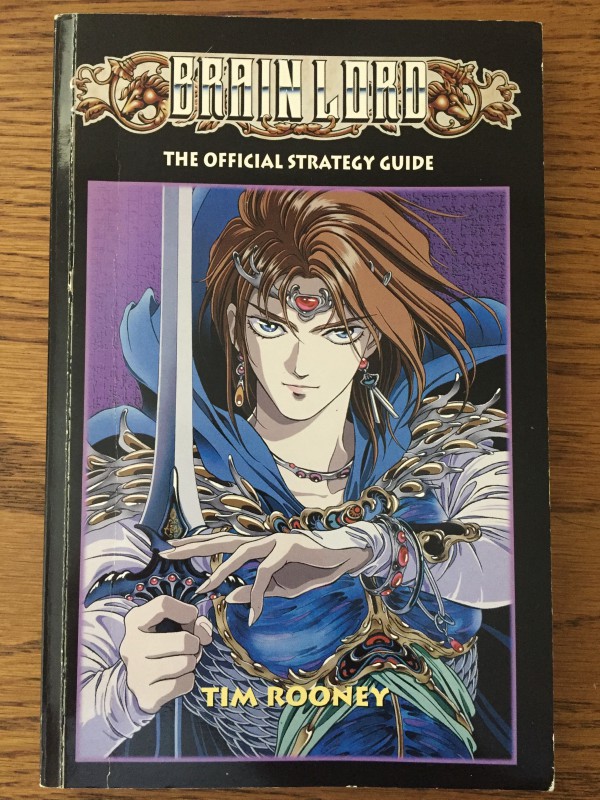
The Brain Lord strategy guide, written by Tim Rooney, was released with two different covers. The one you see above is less common and reflects the Japanese Super Famicom box art. The second version, as seen below, mimics the less than stellar Americanized box art.
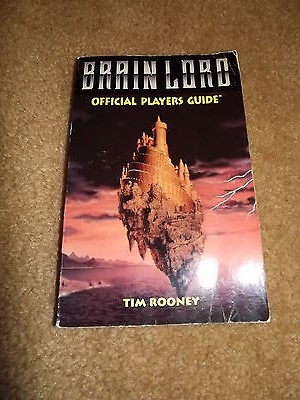

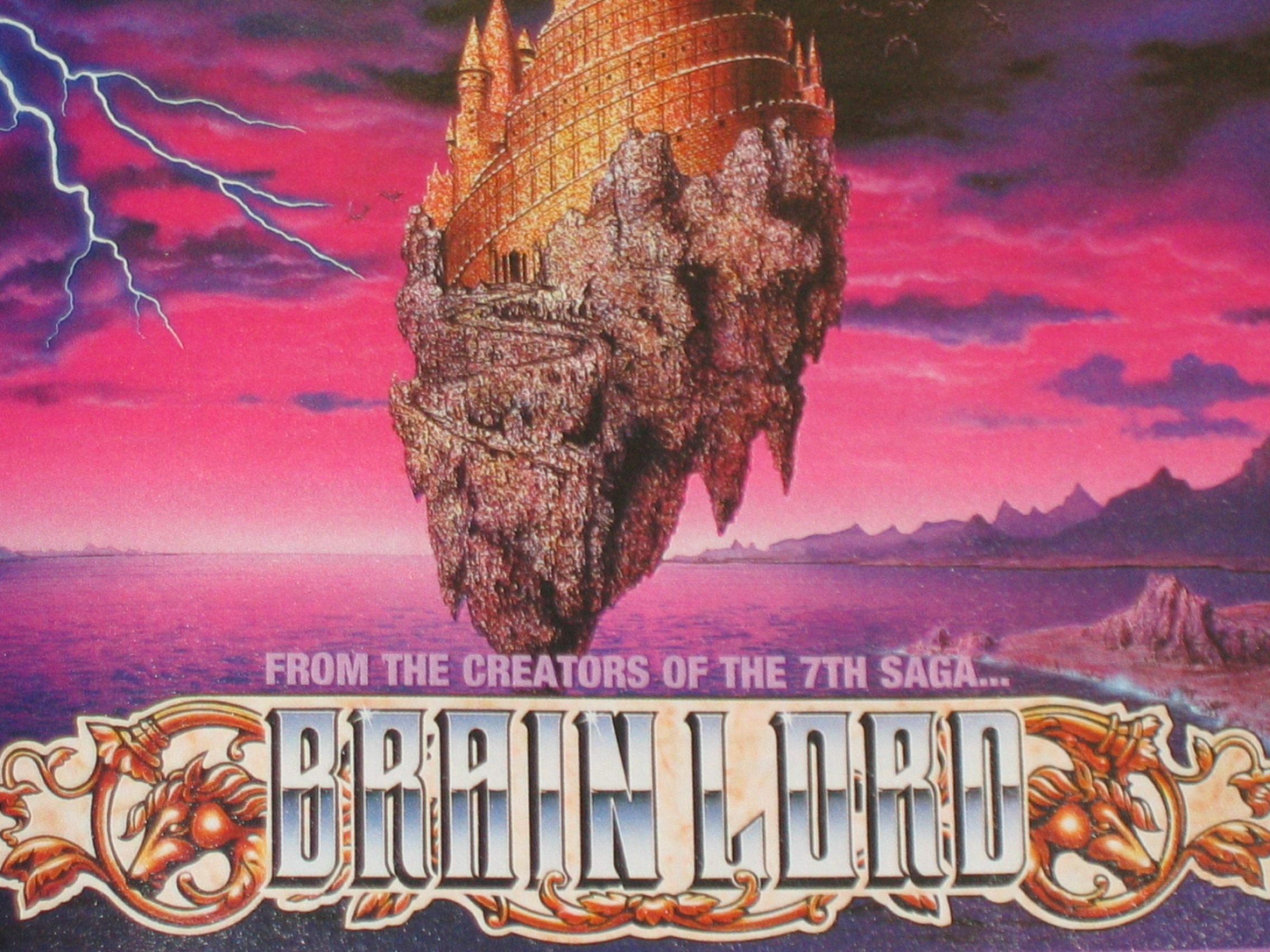
I bought the guide back in 2006 and it’s a neat companion piece to the game. Brain Lord has its share of puzzles but it’s a straight forward game. You won’t really need a guide to beat it, but it’s nice to have to look at or if you’re simply a completionist like I am. Plus it’s a really nice guide to boot, in spite of being in black and white. I really like the look and style of it. Here’s a small sample below.
MEET THE CAST
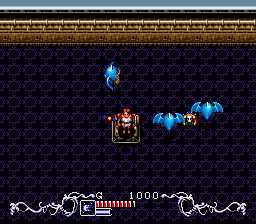
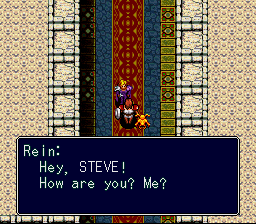
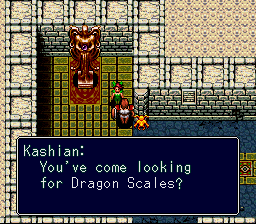
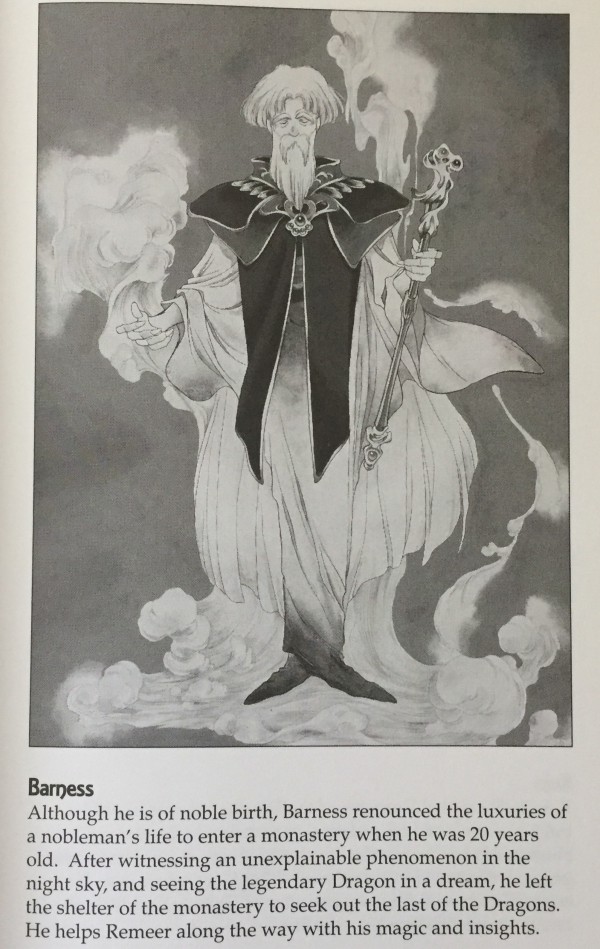
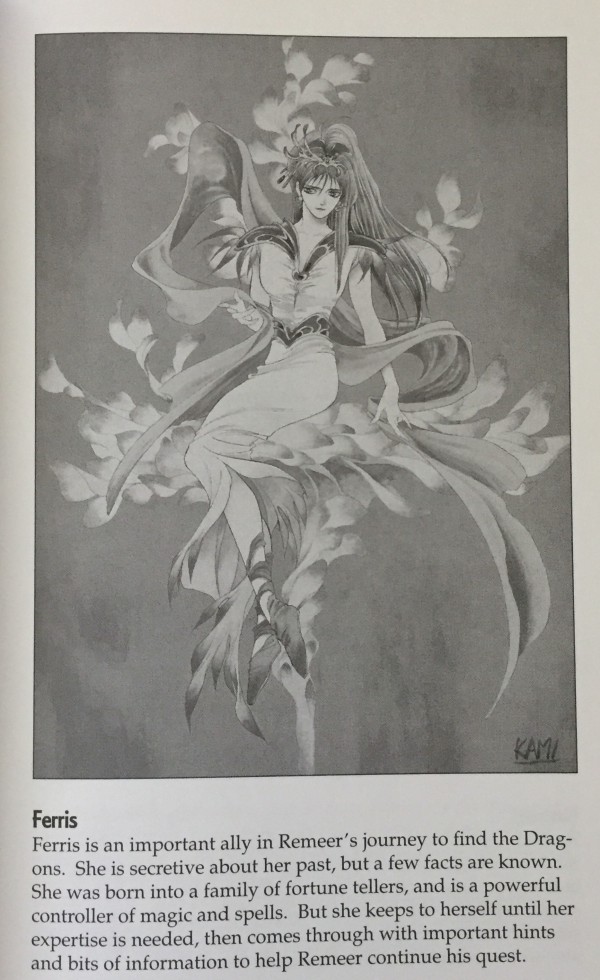
THE STORY GOES…
The plot had me right away.
I was sold.
THE JOURNEY BEGINS
Developed by the same folks that made The 7th Saga.
Remeer, er, STEVE, finds himself reminiscing of days gone by. His mind takes him back 10 years to when his father was still alive…
Steve is snapped back to reality by a stern bartender who can’t afford to let his business suffer on account of whimsical daydreamers. But Steve is far from that. He finds a job listing nearby and takes it on with gusto.
Before heading out though, Steve takes time to stock up and visit with the locals. He’s a bit of a cheeky deviant, that Steve. Kashian finds that out right away…
Fairies are your friends. They aid you in battle and even level up.
Toronto, you say? So much for made up city names! I like how you can jump. Not too many Action RPGs allow you to jump. Clearing fences feels satisfying. Screw walking around!
Doesn’t sound one bit ominous in the least…
Dragons are a recurring theme throughout Brain Lord. But are they really extinct? Later on, you can help a lady clear out her mice-infested attic and earn a couple handy prizes.
Playing Brain Lord is probably the closest you’ll get to experiencing a Super Rygar on your 16-bit SNES.
Remember Rygar on the NES? I was always sad we never got a sequel on the Super Nintendo. Certain parts of Brain Lord remind me of Rygar, though.
Nothing fancy here. It’s straight forward and fairly fun. Jump, solve puzzles and hack away at the monsters. It’s good enough to entertain you for a weekend or two.
Fairies assist you in battle. You can even name them after your failed crushes over the years. I mean, doesn’t everyone do that in these type of games? Um, moving on, then…
JENNIFER the Crimson Jade (and my personal childhood version of Winnie Cooper but that’s neither here nor there) launches a singular fireball at nearby enemies. Think of the Fairies as those “option helpers” in SHMUPS.
Along the way you’ll even gain magic skills. The first being this simple magic shot. Simply hold the attack button until the bar can fill. Stronger magic attacks have a longer bar naturally. Once you acquire multiple magic spells, you can press L or R to toggle between them on the fly as opposed to selecting them through a menu. NICE!
Puzzles abound, hence the title of the game “Brain Lord.” They usually involve pushing objects onto plates to activate locked doors. Puzzles start out simple but gradually get trickier and trickier.
Blasting the monsters from a safe distance feels so damn sweet. Plaques give you tips and clues to heed.
Watch out for deadly traps like sensor spikes! And since you can jump, there are some sections where you’ll need to jump from platform to platform. It definitely adds some variety and increases your evasive and strategic choices.
Misjudge a leap though and it’s back to the beginning you go. Thankfully, the game only deducts one health bar whenever you fall.
Puzzles start getting tougher and require some thinking. If you mess up, simply leave the room for a reset. Brain Lord works the, er, brain a bit.
Disappearing floors all part of the menu.
Puzzles never get too hard to solve, but some will take some time to suss out. Be on the lookout for those Springs of Life. They rejuvenate weary warriors.
Access new weapons and spells as you progress. The Bow is good for long distance attacks while the second magic skill you gain launches a triple shot.
Instead of finding a dragon at the top of the Light Tower, you find a terrible mutant cockroach! It sends its little babies scurrying after you as the creature scampers about the top Tower floor. It changes to a red shade as you weaken this abomination. And you thought your college dormitory was bad!
Upgrade to the Ax after heading back into town. I love how you can chop up just about anything with the Ax! Counter tops, boxes, jars and so forth! One NPC even asks you to please not break his jars. Which, of course, only makes me want to break them even more. I love it when games allow you to do these silly little things. There’s just something really satisfying about it.
Graphics are a bit subpar overall, but I really like the visuals here. Only the Ax can break those rocks, which opens up the next area.
Boomerang spins around and attacks much faster than the Bow. Finding a treasure chest is always a blessing.
Scorpions lurk everywhere in this dank cave.
Maybe it’s just me but the conveyor belts remind me of Super Bomberman and those towering blue demons remind me of the Barons of Hell from Doom.
Virtual Boy on my SNES?! Find the light switch and beware the voltage spots.
Uhhhh, OK then… *slowly backs away*
These robotic Cyclops are a tough out.
You’ll be wise to find the second Fairy, a Light Jewel, that helps light your path. By the way, Brain Lord has more keys than the Bellagio in Vegas.
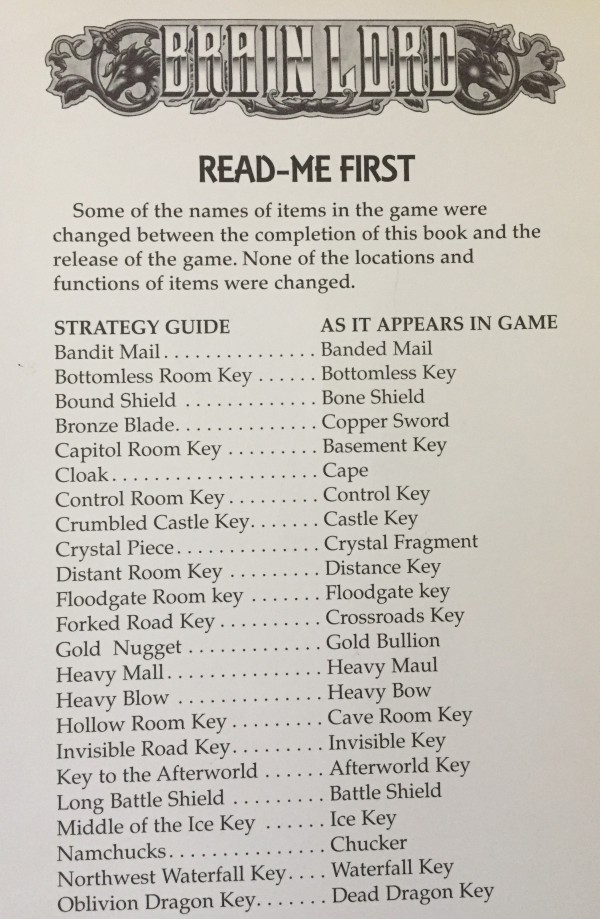
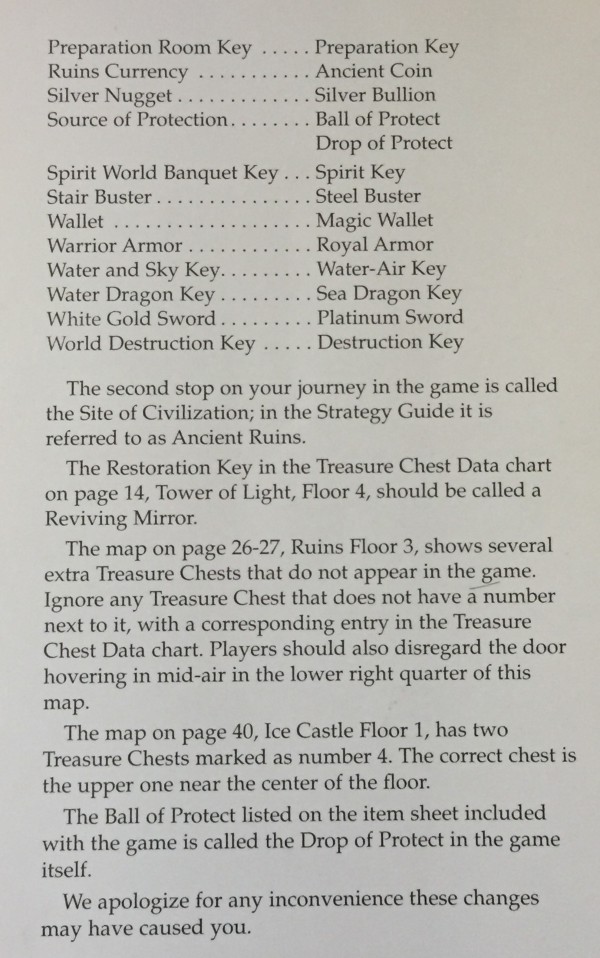
This handy pack-in sheet came with the strategy guide. Nice of Tim Rooney.
Remeer’s best weapon is the Morning Star. It’s a spiked yoyo that packs a mighty punch.
Morning Star makes Brain Lord feel even more like a Super Rygar.
Disappointed still after all these years we never got a Rygar sequel on the SNES.
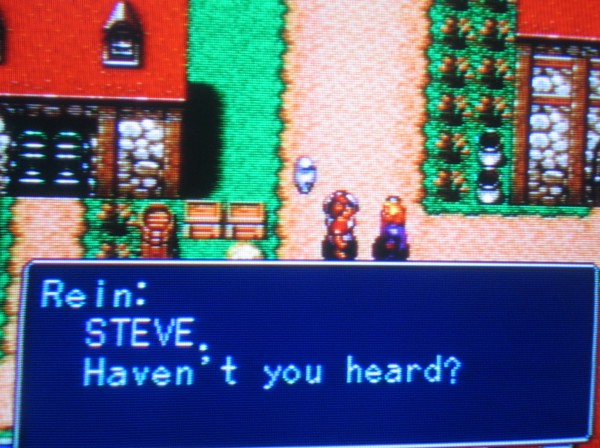
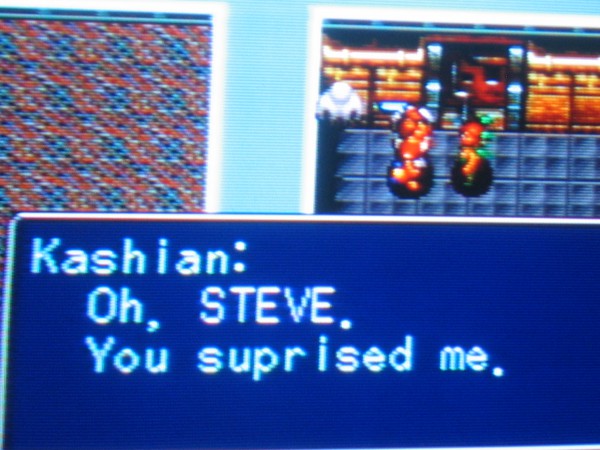
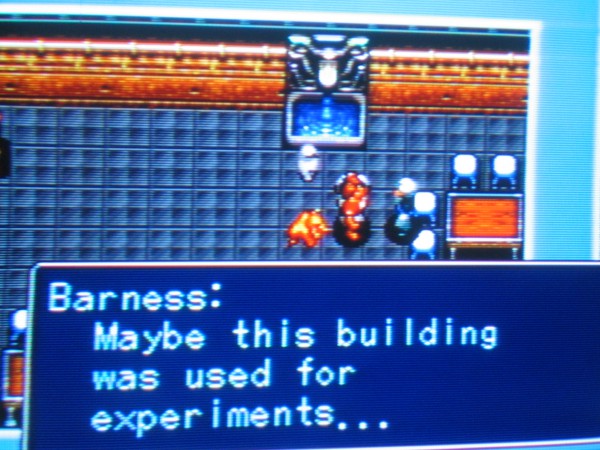
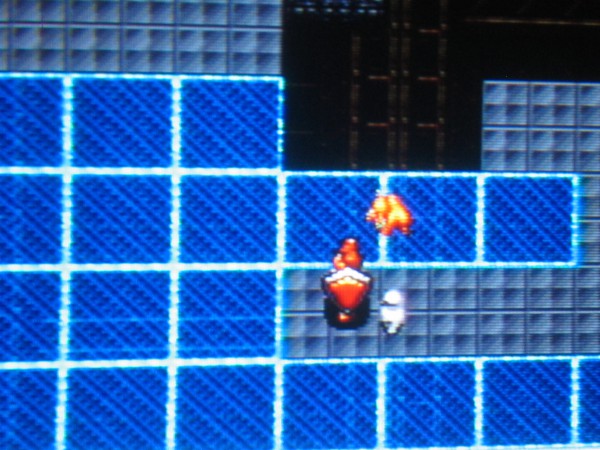
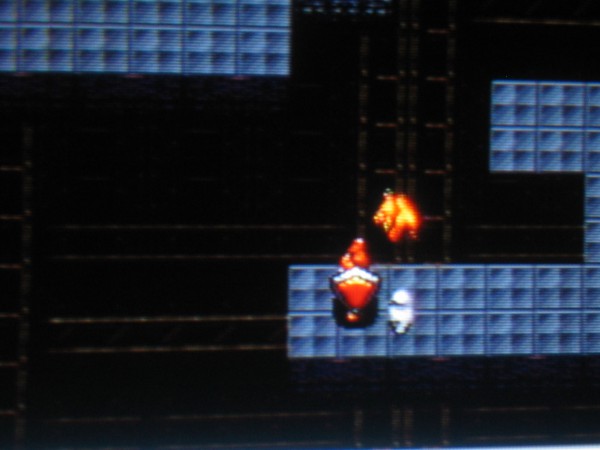
![[Are we talking about the same STEVE here? -Ed.]](http://rvgfanatic.com/wordpress/wp-content/uploads/2017/09/BLEx5-e1505101476698.jpg)
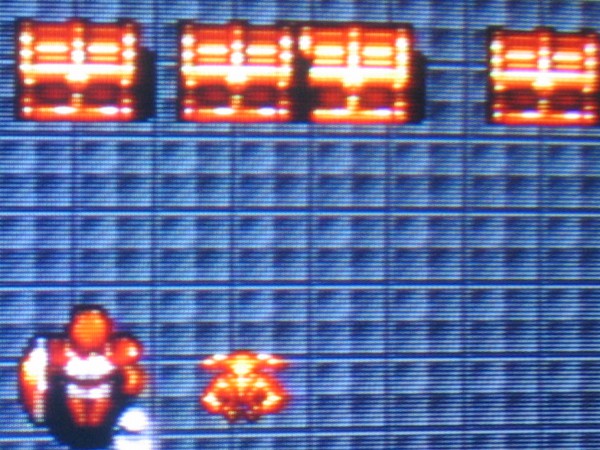
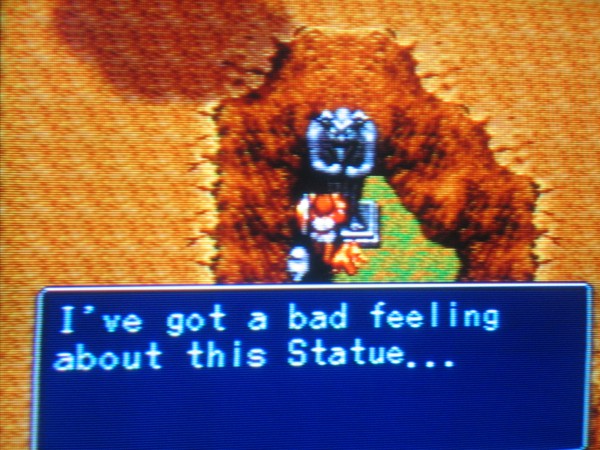
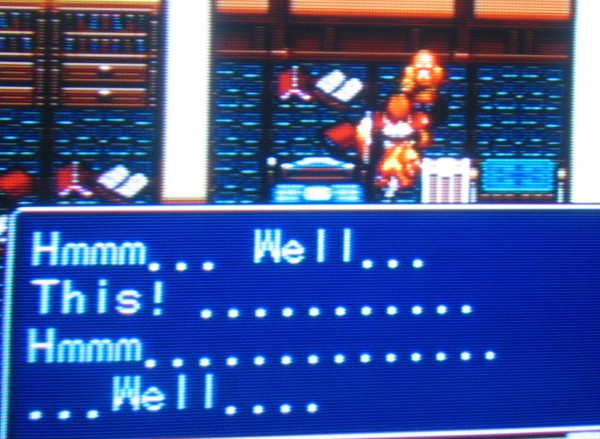
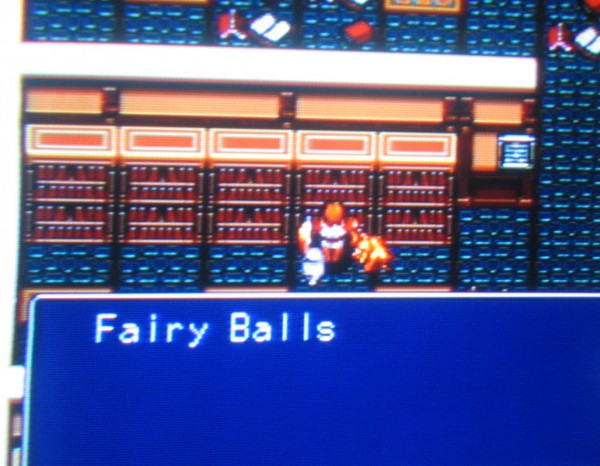
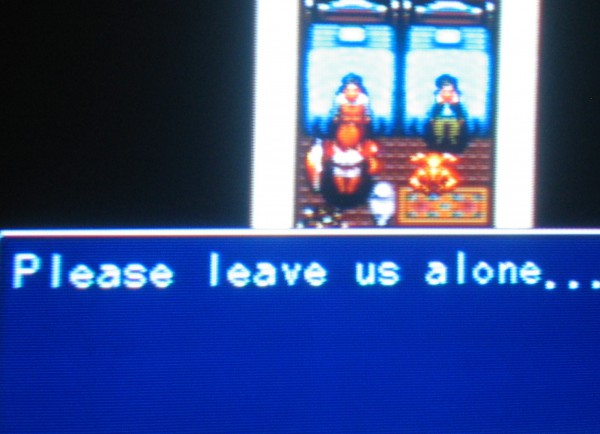
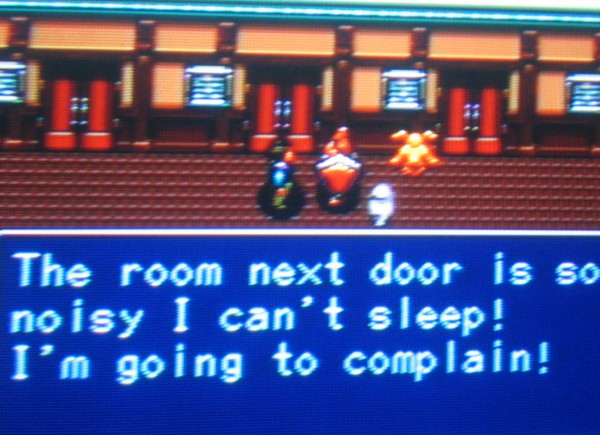
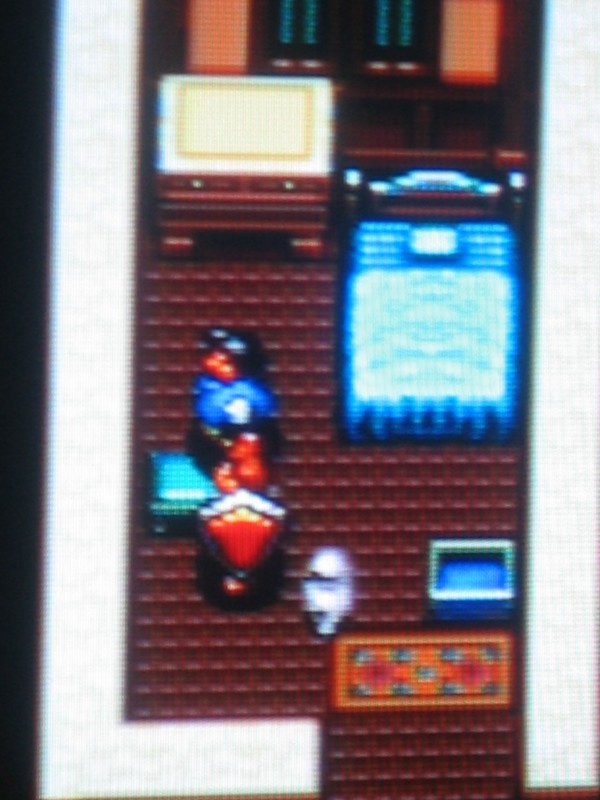
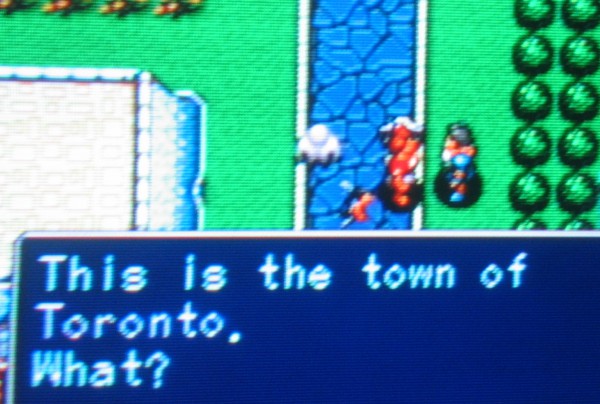
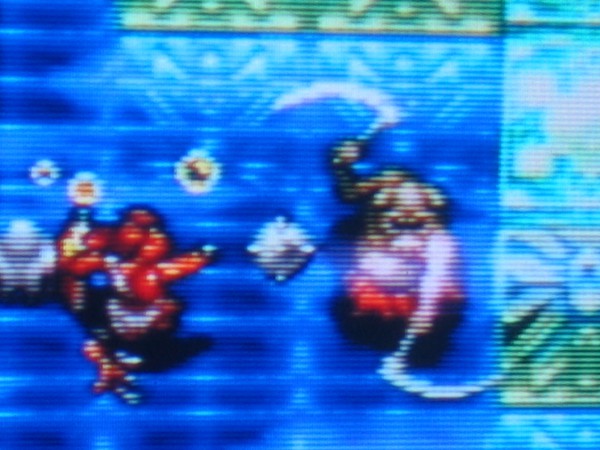
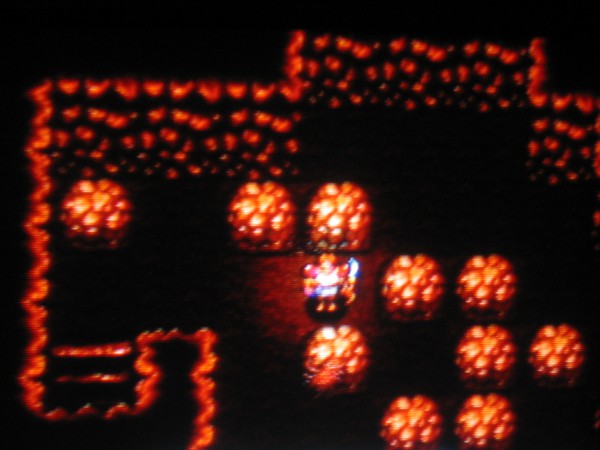
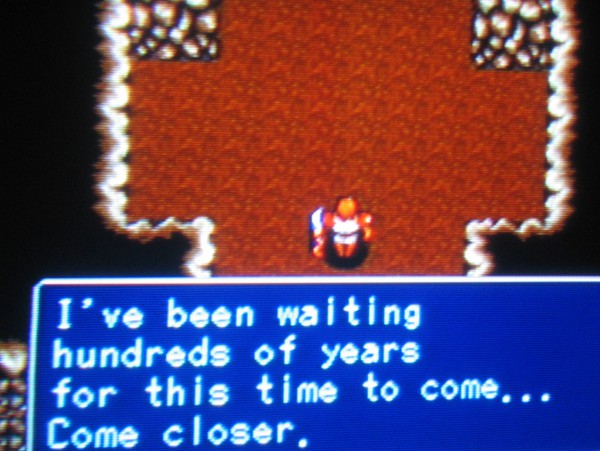
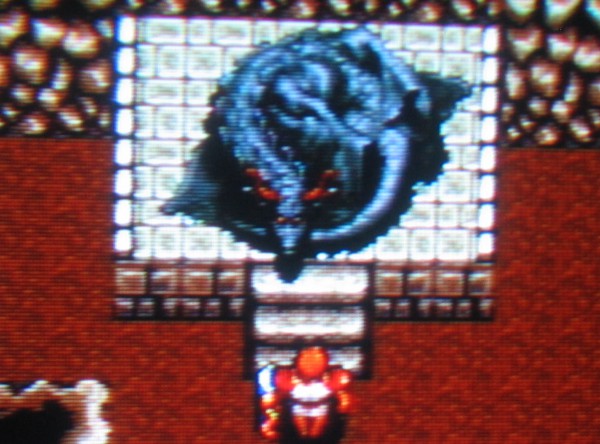
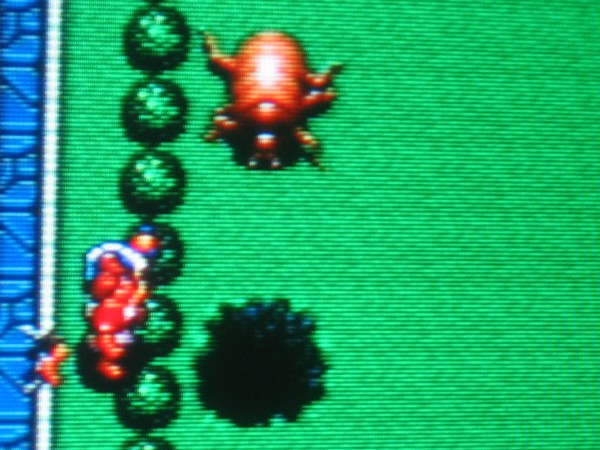
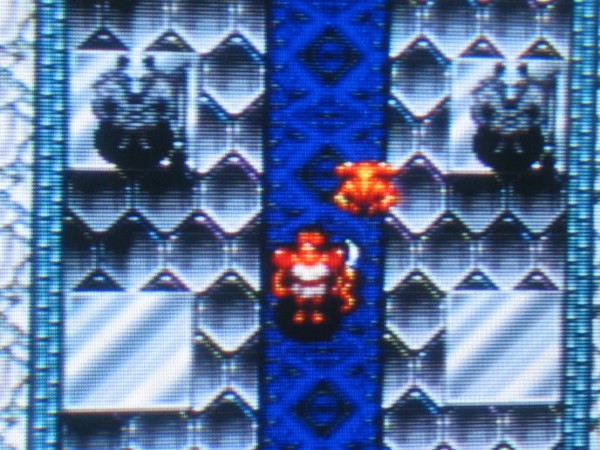
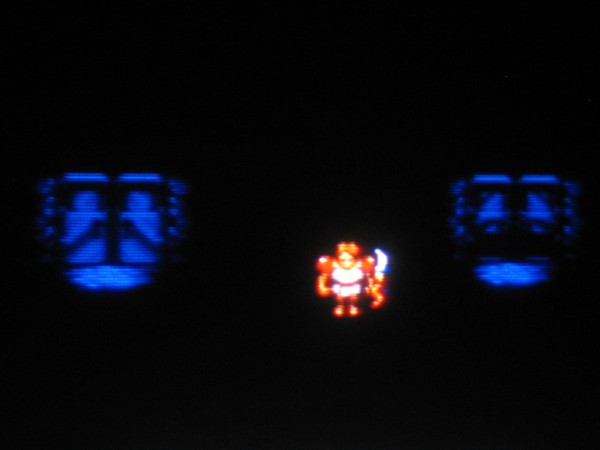
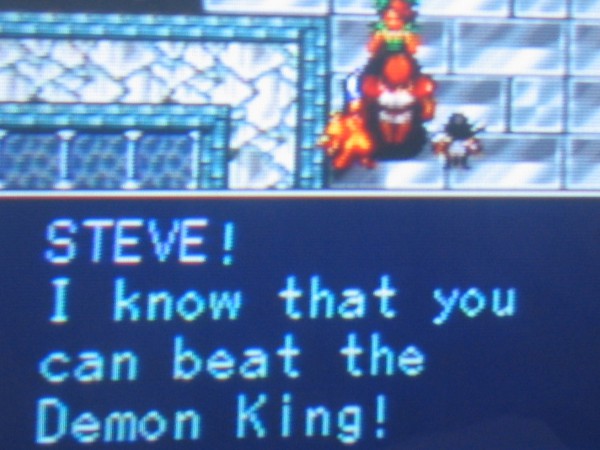

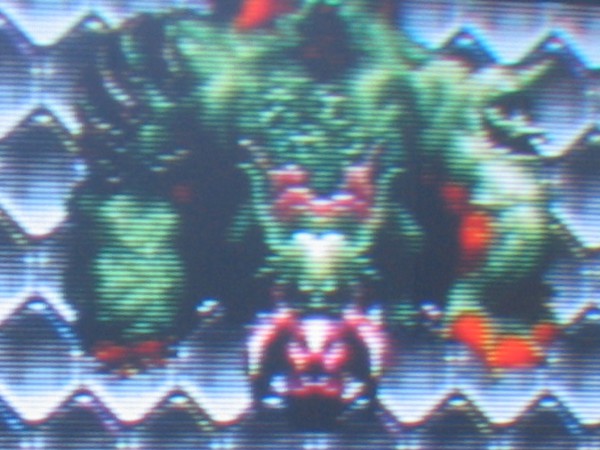
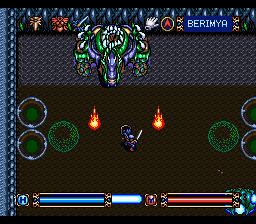
WHAT THE CRITICS SAID
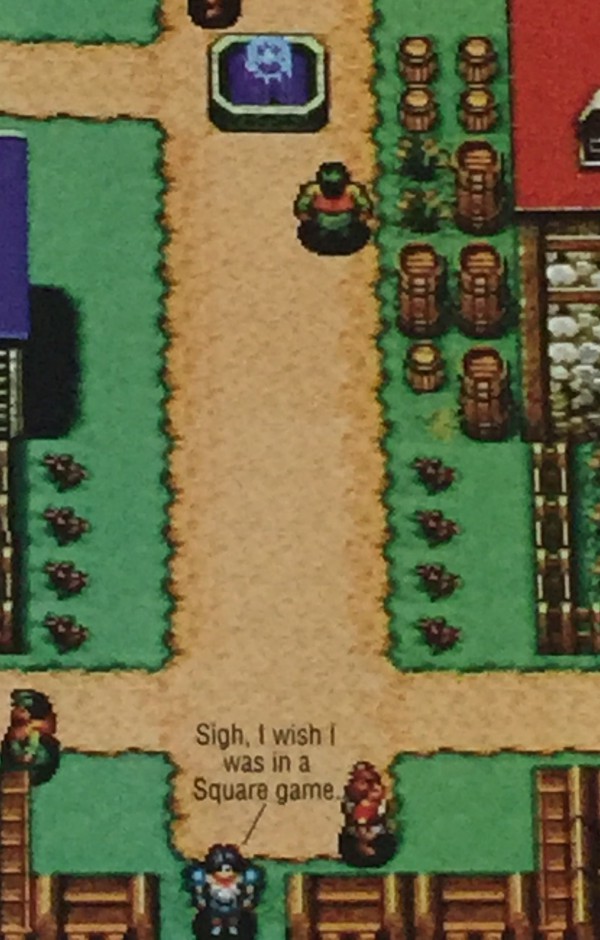
Though Brain Lord didn’t arrive with a great deal of fanfare, it received its fair share of previews and positive reviews. EGM gave it scores of 7, 7, 8 and 8. GameFan scored it 80, 80 and 82%. Super Play rated it 81%. It was viewed as a very competent Zelda clone.
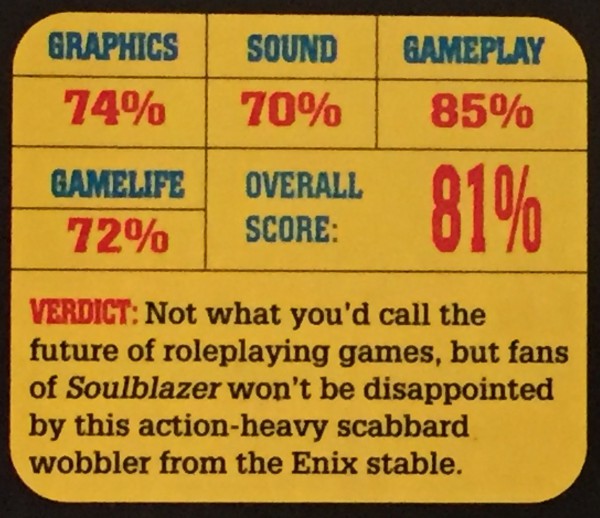
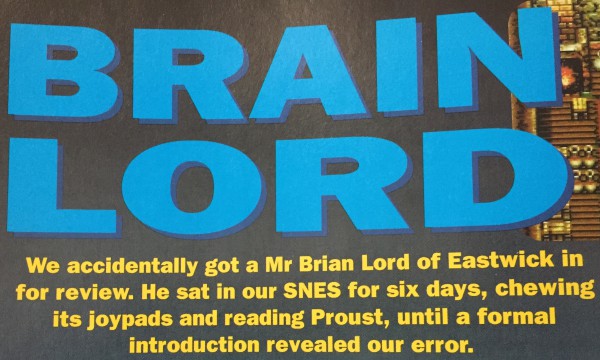
CLOSING THOUGHTS
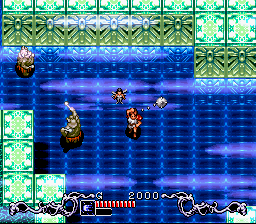
Brain Lord is a competent and solid action adventure worth playing through at least once. It doesn’t do any one thing in particular extremely well, but it does most everything adequately enough to entertain you for a weekend or two. I wouldn’t quite classify it as a bonafide hidden gem, but I definitely recommend it as a lesser known SNES game that you might have overlooked. The different weapons and magic spells are fun to implement and the puzzles help differentiate it somewhat from your typical Zelda clone. Don’t get me wrong, you’ll be doing plenty of hacking and slashing, but be ready to exercise your brain a bit as well. There is some slowdown here and there when the screen gets a bit hectic but overall, the game plays fine and should run you between 12-18 hours.
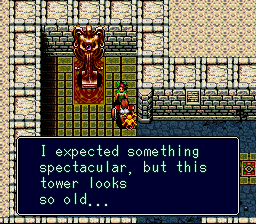
Graphically, Brain Lord is a bit lacking. A lot of the colors seem a bit drab but there are some nice looking areas mixed in. It does have that 7th Saga look to it, but that’s not surprising considering how it was made by the same developer. Regardless, you expect a bit more from a Super Nintendo game released in mid-late 1994. The sound is a mixed bag as well. Some of the music sounds great but other tracks are forgettable. The sound effects are downright comical. They either don’t match the enemy or one breed in particular seems to say “F*CK!” whenever hit. I guess it’s good for a laugh, though. On the bright side, Brain Lord is pretty tough and not a complete cake walk. I like the variety of weapons and I love how you can switch spells on the fly by using the shoulder buttons rather than accessing them through a cumbersome menu (although you can do that too if it tickles your fancy). Some of the puzzles are really fun to solve and I like the ability to jump. I wish there were more enemy types but at least the enemy AI is pretty legit — they’ll even chase you! Brain Lord isn’t the kind of game you need to rush out and play, but chances are, you probably won’t regret it if you gave it the time of day.
Graphics: 6.5
Sound: 7
Gameplay: 7.5
Longevity: 7
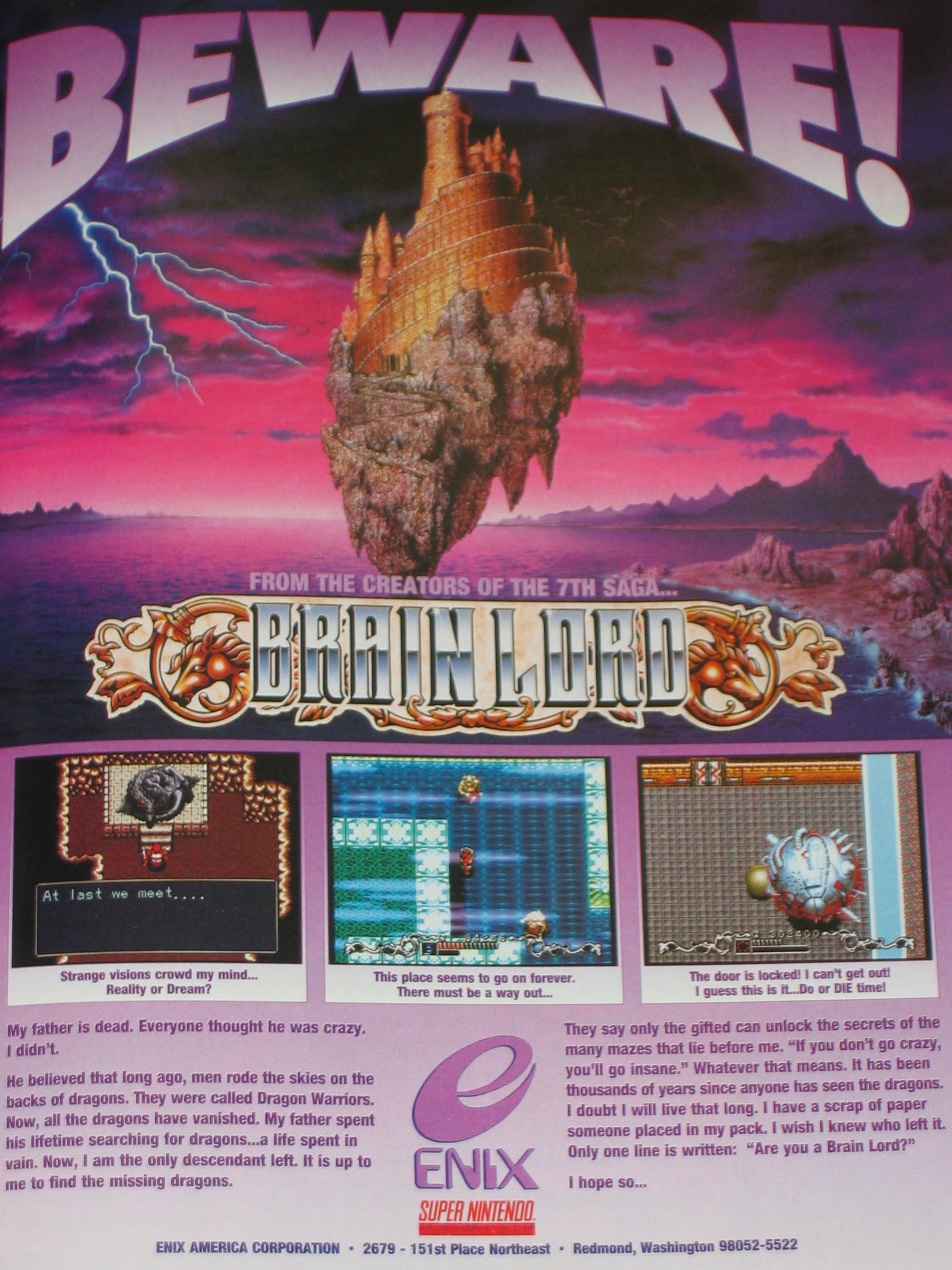
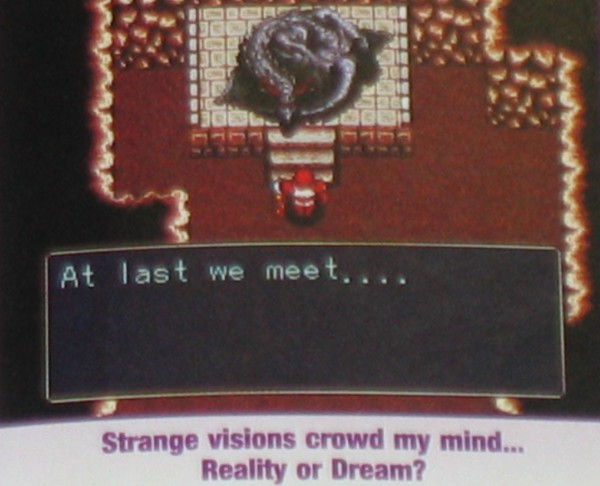
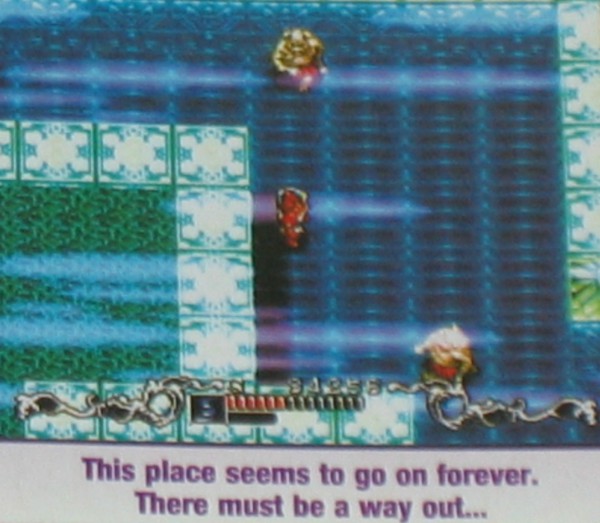
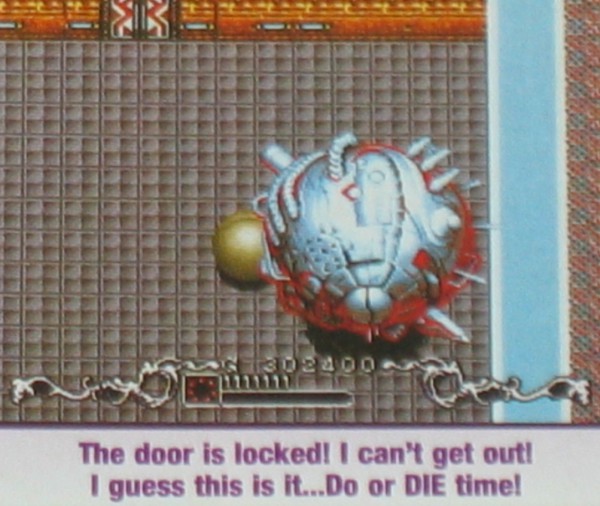
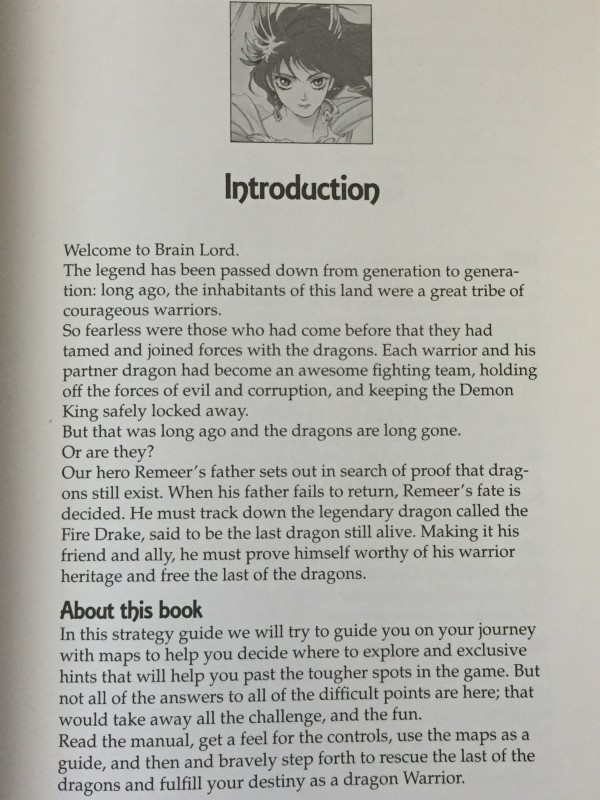
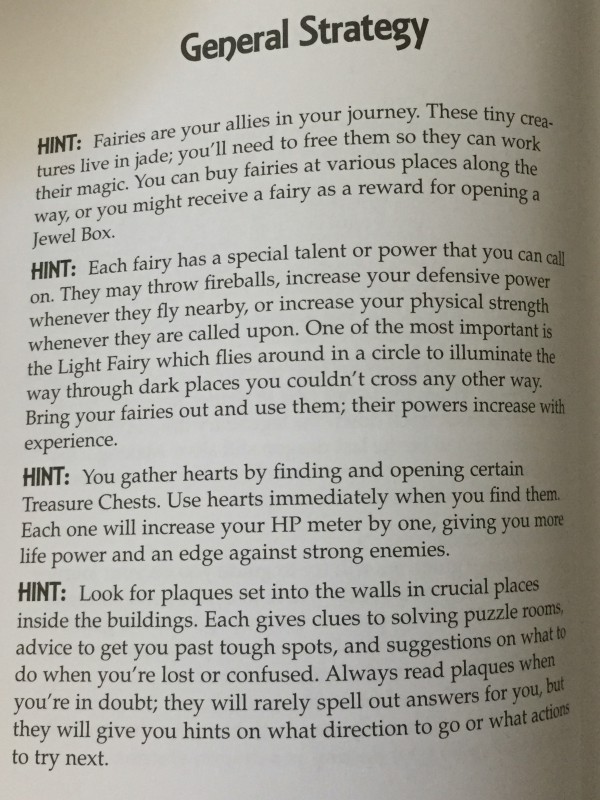
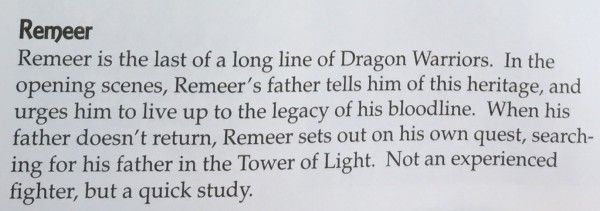
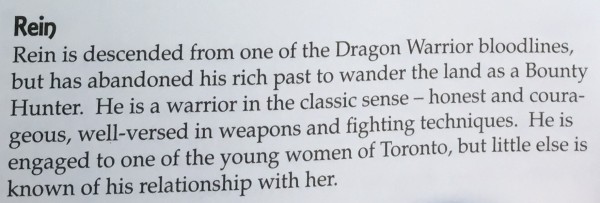

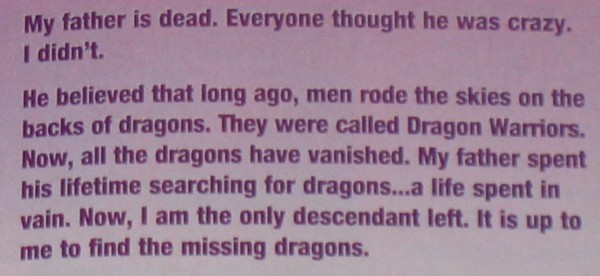
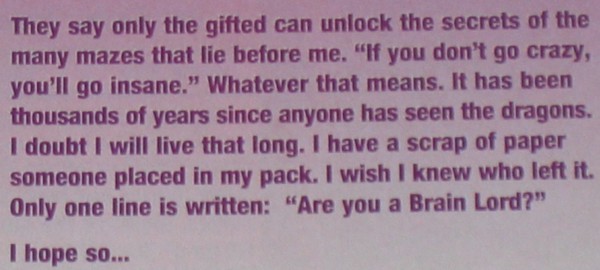

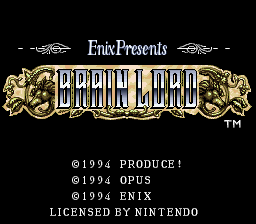
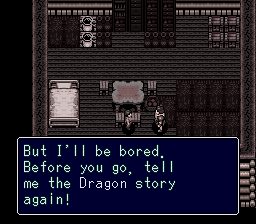
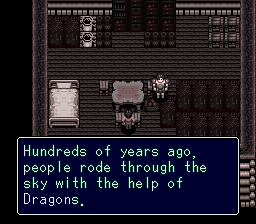
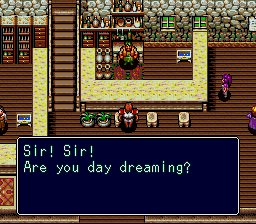
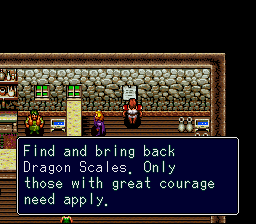
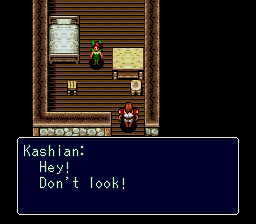
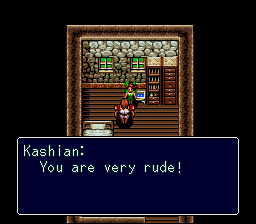
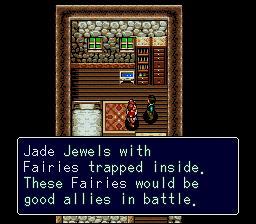
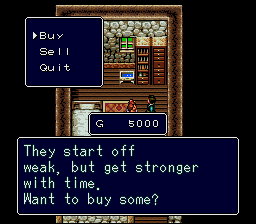
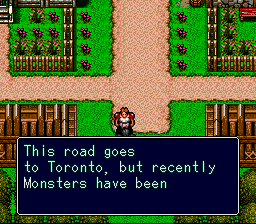
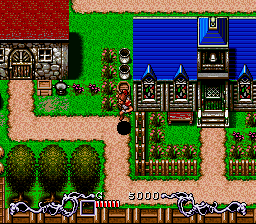
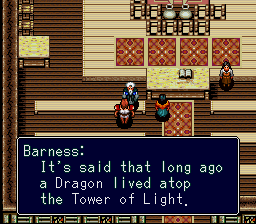
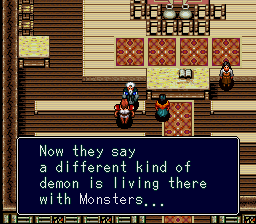
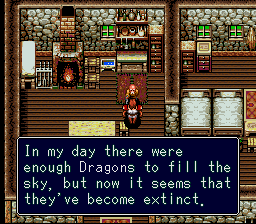
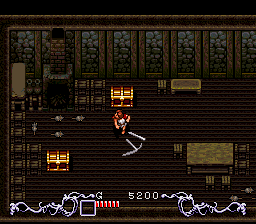
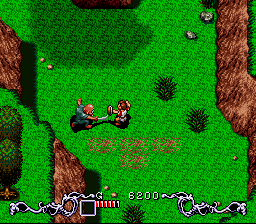
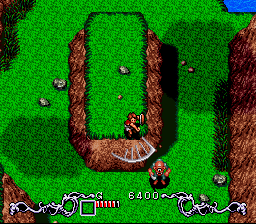
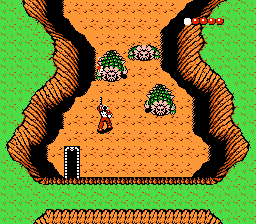
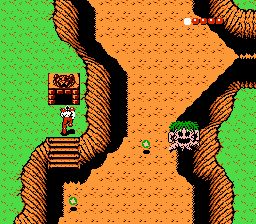
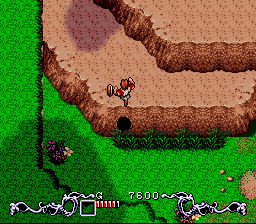
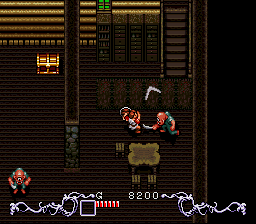
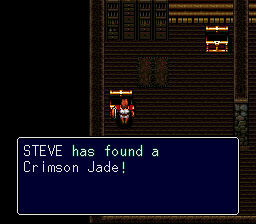
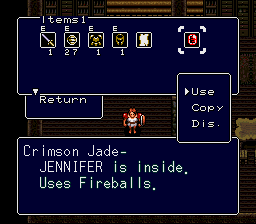
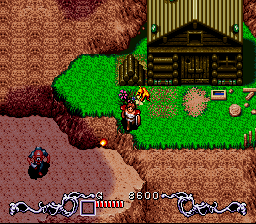
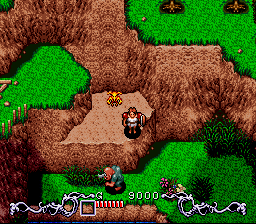
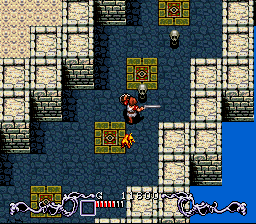
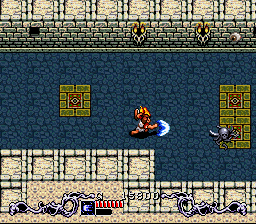
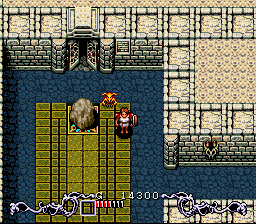
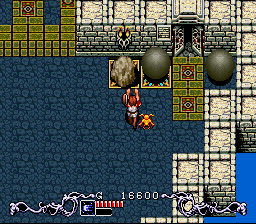
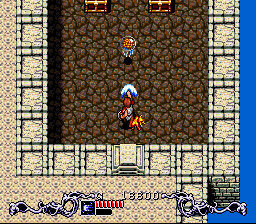
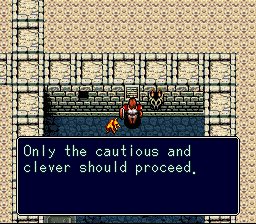
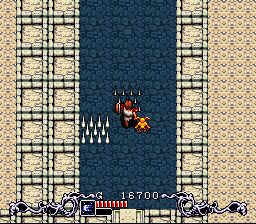
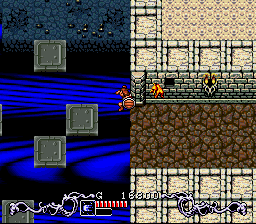
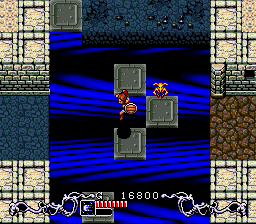
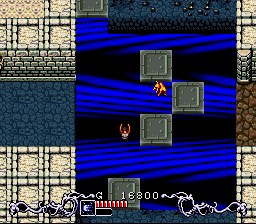
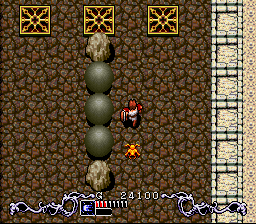
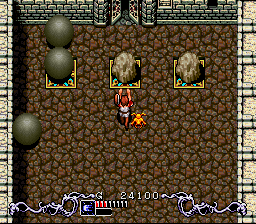
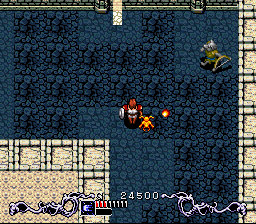
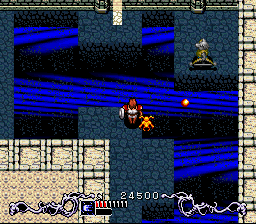
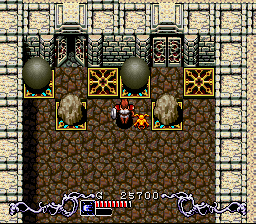
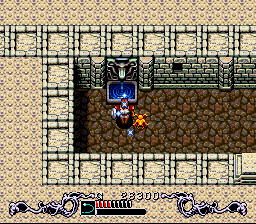
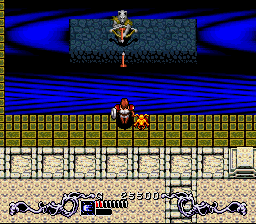
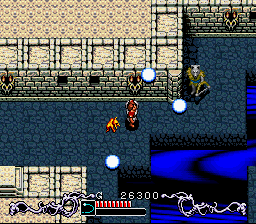
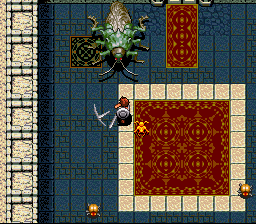
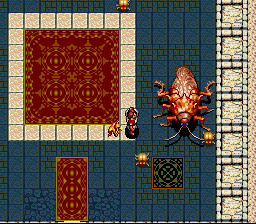
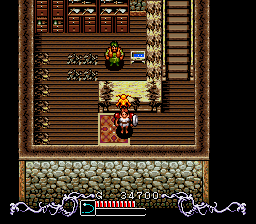
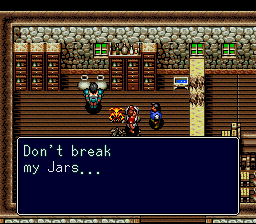
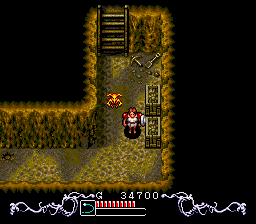
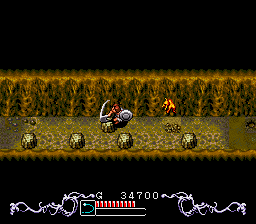
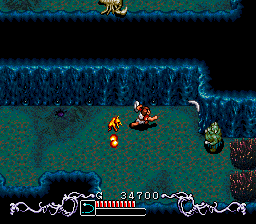
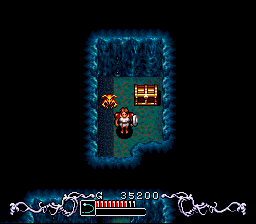
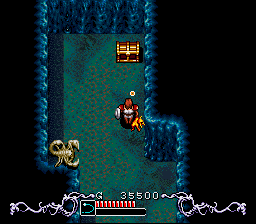
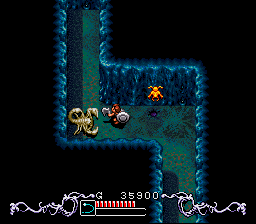
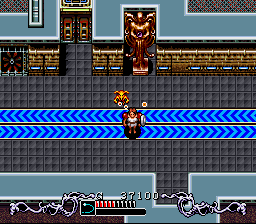
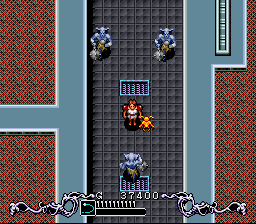
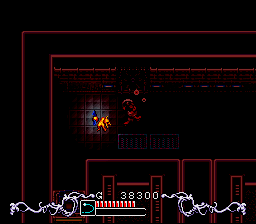
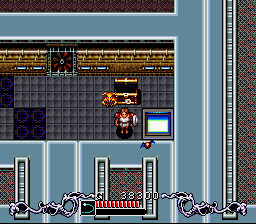
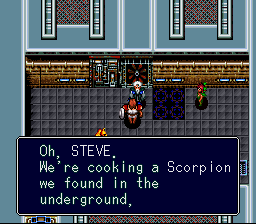
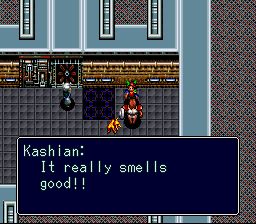
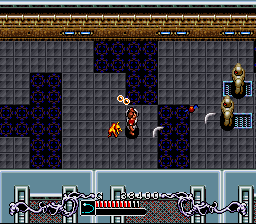
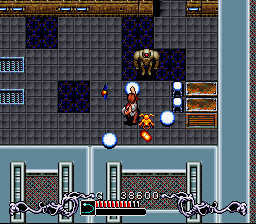
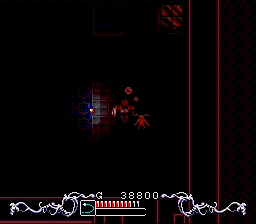
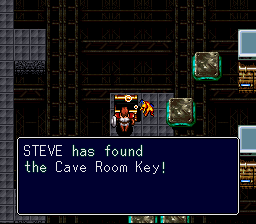
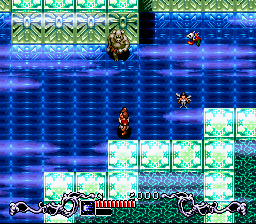
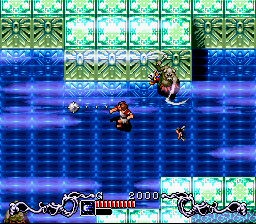
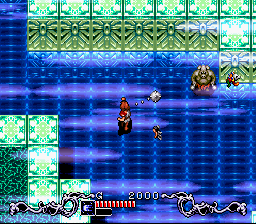
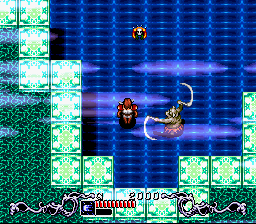
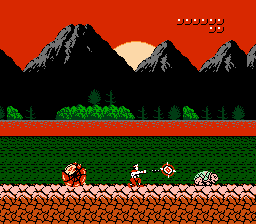
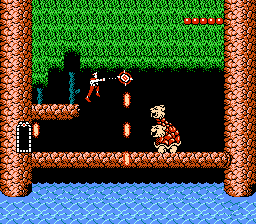

7.5 is about right I feel, RVGSteve. Like with Equinox and Lagoon, Brain Lord is one of those games I find myself revisiting once a year (since I got it in December 2009) as I do feel it to be a fun game while it lasts. =) Only wish it was longer and maybe a slight bit bigger than it actually was, but overall it’s an underrated oddity.
While translation-wise it wasn’t great at least it wasn’t a mess like in the Enix release of Quintet and Ancient’s Robotrek (Brain Lord first came out in Japan in January 1994 but didn’t arrive in American NTSC format until that October, while Slapstick arrived on the Super Famicom in July 1994 but also came in America as Robotrek that October). Don’t get me wrong, I like Robotrek enough for I do think it’s cute and quirky lighthearted fun but man that game’s translation makes me wince. But I digress.
Brain Lord’s biggest strength is its puzzle-solving aspect, I like how the myriad of plaques you read on the wall have different puzzles ranging from straightforward to complex, the dungeon designs are neat, and Opus’ Masanao Akahori’s soundtrack I do actually quite enjoy as it does give this game its own sense of life and atmosphere (the desert theme for when you venture towards the Ice Castle is haunting, and the Platinum Shrine is one of my all-time favorite final dungeon themes from any game). =) The Fairy Jade system is a good one, though I think they might reduce the game’s challenge a bit and I really only use four of them as the majority of them I’m not too keen on: Sarah the Power Jade, Golem the Foundation Jade, Pazun the Light Jade, and Ason the Life Jade.
I do enjoy platforming in this game, over the years I found myself relying more on the boomerang-style weapon for the game’s final stages due its sheer range, and maybe it’s me but this game doesn’t really feel like a Nintendo 16-bit game (maybe due to its presentation, the way its soundtrack is done, and the pulldown menu system). Not that I’m saying it’s a bad thing, but it is fascinating in this respect.
Last year I imported the original Super Famicom version after years of playing the NTSC SNES version, and while the game on the whole was the same there were differences that made it worth comparing and contrasting: Remeer’s in-game hair was blue as opposed to brown (even though in the Super Famicom cover and concept art his hair is brown), the weapon potency was doubled while in the American version it was halved, the three sorceress’ place has a Judaism symbol removed in the American version, and the room where you first confront Ramus and fight his ghouls were different as in the Japanese version it was a straight solid line sandwiched by two icy halves with no holes to fall into while in the American version the floor was all icy with four holes. I prefer the Japanese version but the American version is still good in its own right.
I solved all the puzzles on my own the first time around except two: the first one was due to a mistranslation (“the puzzle is in the pillar”–turns out I had to push the wall around it to reveal a door, never mind that a wall and a pillar are not the same thing) and the second one I’m not sure how anyone would’ve gotten without looking it up (“the key is in the Control Pad”). Every time since I’ve had no problem solving the plaques’ puzzles, and the more I played it the easier and shorter it got to the point where I can beat it in one life.
And regarding one of the enemies sounding like they’re shouting the f-bomb when being attacked (in either version): yeah, it does sound similar now that you mention it. I mean, wow! XD
Keep up the great work, RVGSteve, to each their own =)
Thanks Star Boy for sharing some of the differences between the JP and NA versions! Yeah, I think 7.5 is just about right for Brain Lord. I actually was debating with myself whether I should score it a 7.0 or a 7.5. 7.5 games to me are solid pretty good examples of their genre but aren’t exactly “gems.” But since I have the “Bronze Award” for games that score 7.5, it’s like an extra seal of approval over games that score 7.0 and have no trophies to call their own. Perhaps Brain Lord is more of a 7.25 game but I don’t do quarter increments and decided to bump it up to 7.5 to give it that extra push that other folks should try it if they never have. It is a fun little game and fairly engaging. The kind of Action RPG I wish we saw more of on the SNES. It’s certainly better than the likes of Lagoon (which I like actually, especially given its time of release).